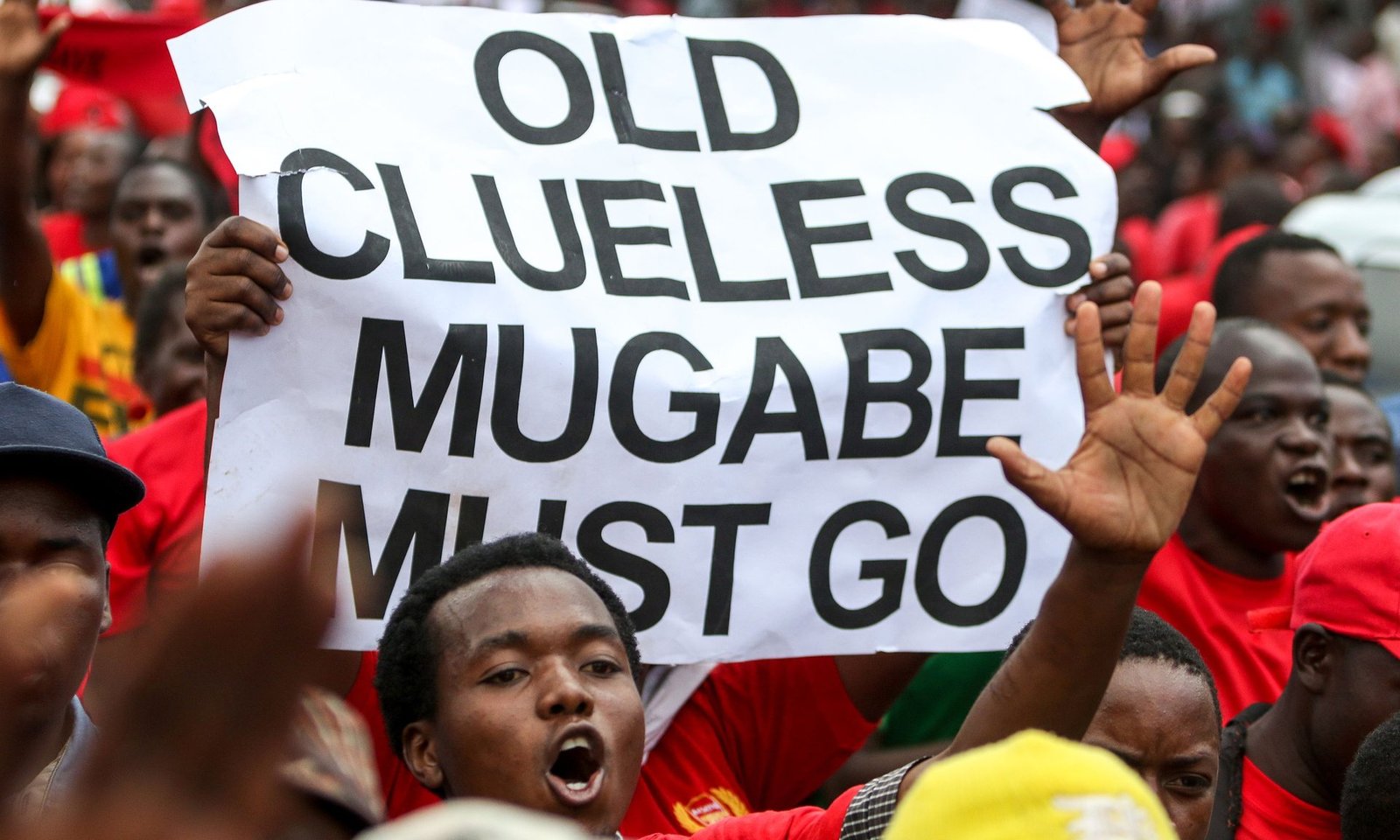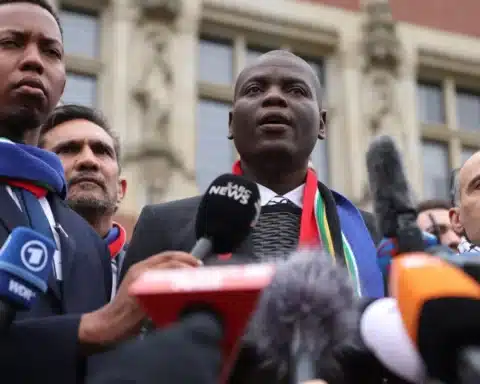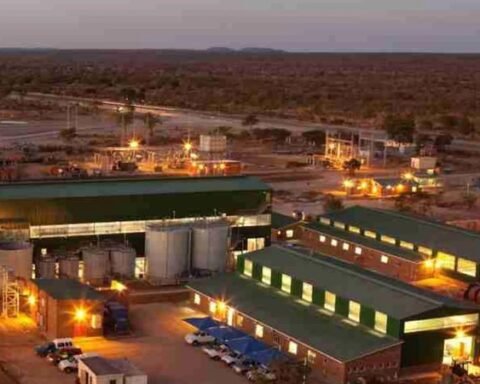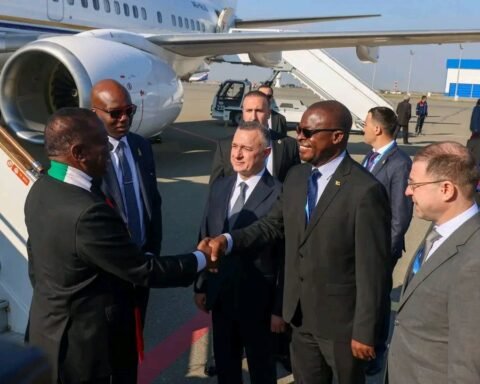Zimbabwean opposition parties have vowed that they would not allow President Robert Mugabe to “lead the country from a wheelchair”, and threatened to embark on massive street protests to push the southern African country’s electoral body to implement key democratic reforms before the 2018 national elections.
Cabinet ministers on Monday gave Mugabe a “special massage chair” as a gift at a belated birthday ceremony held at State House. Mugabe, who turned 93 on February 21 this year, held a lavish celebration party in the Matopo district in southern Zimbabwe despite criticism from local people there who accused him of feasting in their area whilst they could hardly put food on their tables.
The opposition parties, which gathered in downtown Harare on Wednesday to push for poll reforms, charged that Mugabe was now too old to continue as president and had pushed the Zimbabwean economy into abyss.
One of the Movement for Democratic Change leader Morgan Tsvangirai’s co-deputies, Elias Mudzuri, told thousands of people who thronged the rally that it was now time for Mugabe to pass the baton and allow for credible polls to be held next year.
Rural areas
“Mugabe has put a wall between the people and their food and we cannot be defeated by one person. If you go to banks there is no money and pensioners are not getting their dues yet some people think that we can allow Mugabe to rule us from a wheelchair. We must be united against Mugabe and we are not going to allow Mugabe to get older and continue to rule us from a wheelchair; No, it’s enough”, said Mudzuri to a thunderous applause from the crowd.
First Lady Grace Mugabe torched a storm two years ago when she told Zanu-PF supporters her husband could “rule from the wheelchair as long Zimbabweans want him to remain their president”. This year, the controversial First Lady reignited the fire when she said that Zimbabweans could even vote for Mugabe’s “corpse” in the event that he died before next year’s elections.
Meanwhile, a representative of the Joice Mujuru-led National People’s Party, Munyaradzi Banda said it was going to be difficult for Mugabe and his Zanu-PF party to rig the 2018 if a coalition against him was mooted.
“We respect Mr Tsvangirai’s contribution to the democratic struggle and we are saying that if Mujuru works with Tsvangirai in a coalition there is no way Mugabe can rig the polls because we know all his dirty tactics. As NPP we are working with war veterans and we have penetrated all the rural areas that Mugabe thinks are his strongholds,” said Banda. “All we want are electoral conditions that do not breed a pre-determined outcome”.
Key electoral reforms
The opposition parties demanded that the Zimbabwe Electoral Commission be disbanded to allow the polls to be conducted by the Southern African Development Community working together with the African Union and the United Nations. They also accused ZEC chairperson Rita Makarau of being a Zanu-PF agent, adding that the electoral body was not truly independent.
Makarau could not be reached for comment as her mobile phone went unanswered.
In 2008, the electoral body withheld the results of the presidential poll for a month only for ZEC to announce results that were disputed by Tsvangirai’s MDC. This caused SADC to intervene, resulting in Mugabe forming a coalition government with Tsvangirai that ended when Zimbabwe held another disputed poll in 2013.
Meanwhile, the opposition parties resolved to take to the streets to force ZEC to implement key electoral reforms before next year’s polls.
“We are now saying to Mugabe and his police that we are going into the streets very soon. We are Zimbabweans and we have rights too; if one million people can be allowed to march in the city centre in support of Mugabe why can’t we be allowed to march in the city centre? It’s our country too,” said MDC secretary general Douglas Mwonzora.
No dates have been announced for the protests yet. Mugabe’s government has previously crashed opposition protests using brute force and received condemnation from the opposition, local human rights groups and the international community.








